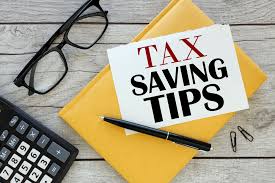How to Protect yourself from Overpaying Taxes

- Being Aware of your tax rate :
- Knowing federal and state tax brackets helps you calculate your marginal tax rate.
- How to maximize deductions
- Maximize your tax savings by deciding between the standard and itemized deduction methods.
- Deductible expenses incorporate mortgage interest, property taxes, state and local taxes (capped at $10,000), medical costs (over 7.5% of AGI), and charitable gifts.
- Home Office Deduction eligibility: Self-employment and meeting IRS guidelines are key.
- Taking Tax Credit Claims
Tax credits offer more significant tax savings than deductions because they directly reduce your tax liability.
- Child Tax Credit
- Earned Income Tax Credit (EITC)
- Education Credit :American Opportunity Credit, Lifetime learning Credit
- Energy Credits:Solar or renewable energy investments
- Use of Retirements Accounts
- Contribute to tax-advantaged accounts like 401(k)s or Traditional IRAs to reduce taxable income.
- Consider Roth IRAs for tax-free withdrawals in retirement.
- Planning done for Capital Gains
- Keep your investments for more than a year to be eligible for lower long-term capital gains tax rates.
- Offset gains with capital losses through the strategy of tax-loss harvesting.
- Staying Updated on tax law changes
- It is advisable to consistently monitor IRS updates or seek the guidance of a tax professional in order to benefit from newly available deductions, credits, or modifications to existing limits.
- Adjusting your withholding
- Utilize the IRS Withholding Calculator to verify that you are neither over-withholding nor under-withholding from your salary.
- Flexible Spending Accounts (FSAs) and Health Savings Accounts (HSAs)
- Make contributions to Flexible Spending Accounts (FSAs) or Health Savings Accounts (HSAs) to cover healthcare costs using pre-tax funds.
- Review Filling status
- Select the most advantageous filing status (such as Married Filing Jointly or Head of Household) to minimize tax obligations.
- Hire a Tax Professional or Use Software
- A Certified Public Accountant (CPA) or tax preparer has the expertise to recognize deductions and credits that may have been missed. Additionally, tax software such as TurboTax or H&R Block can assist in maximizing tax returns.
- Keep Accurate Records
- Maintain receipts, invoices, and documentation for all deductible expenses in case of an audit.
Conclusion: Protecting Yourself from Overpaying Taxes
By taking a proactive approach to tax planning and staying informed about available deductions, credits, and legal strategies, you can significantly reduce the chances of overpaying your taxes. From keeping accurate records and maximizing retirement contributions to understanding the ins and outs of tax law, knowledge is your most powerful tool. Don’t forget to regularly review your tax situation, especially after major life changes or shifts in income, and consider consulting with a tax professional to ensure you’re not leaving money on the table. With careful planning and a little effort, you can minimize your tax liability and keep more of your hard-earned money where it belongs—in your pocket.
Stay informed, stay organized, and take control of your tax strategy today!
